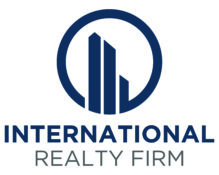Welcome to your ultimate guide to buying a house in Scarborough Ontario! If you’re considering purchasing a home in this vibrant and diverse city, you’re in the right place. Scarborough, located in the eastern part of Toronto, offers a wide range of housing options, excellent amenities, and a rich cultural heritage. In this comprehensive article, we’ll walk you through the entire process of buying a house in Scarborough, Ontario, from understanding the local real estate market to securing financing and closing the deal. Let’s dive in!
Understanding the Scarborough Ontario Real Estate Market
In this section, we will provide you with an overview of the Scarborough Ontario real estate market. Understanding the current trends and market conditions is crucial when buying a house. Here are some key points to consider:
- Growing Demand: Scarborough is experiencing a surge in demand for housing, thanks to its affordable prices, proximity to downtown Toronto, and diverse communities.
- Variety of Housing Options: Scarborough offers a diverse range of housing options, including detached houses, townhouses, condominiums, and apartments. This allows buyers to find a home that suits their needs and budget.
- Average Home Prices: The average home price in Scarborough, Ontario is around CAD 750,000. However, prices can vary depending on the location, size, and condition of the property.
- Market Trends: The real estate market in Scarborough has been steadily appreciating over the past few years. While this is positive for homeowners, it’s essential to carefully evaluate property values before making a purchase.
Setting Your Budget: Financing Your Home Purchase
Before diving into the house-hunting process, it’s crucial to set a realistic budget and secure financing for your home purchase. Here are the steps you should follow:
- Evaluate Your Finances: Assess your current financial situation, including your income, savings, and monthly expenses. This will give you a clear understanding of how much you can afford to spend on a house.
- Get Pre-Approved for a Mortgage: Contact a reputable lender and get pre-approved for a mortgage. This will help you determine your borrowing capacity and streamline the home-buying process.
- Consider Additional Costs: Apart from the purchase price, keep in mind other costs associated with buying a house, such as closing costs, property taxes, insurance, and moving expenses.
- Work with a Mortgage Broker: Consider working with a mortgage broker who can help you navigate the mortgage market and find the best financing options for your needs.
Choosing the Right Neighborhood in Scarborough
Scarborough is a large city with many diverse neighborhoods, each offering its unique charm and amenities. When choosing the right neighborhood, consider the following factors:
- Location: Evaluate the proximity of the neighborhood to your workplace, schools, public transportation, and essential amenities such as grocery stores, parks, and healthcare facilities.
- Safety: Research crime rates and safety records of the neighborhoods you’re interested in. Online resources and local police stations can provide you with valuable information.
- Community and Amenities: Explore the community vibe, local attractions, recreational facilities, shopping centers, and restaurants in the neighborhood. Look for a neighborhood that aligns with your lifestyle preferences.
- Schools and Education: If you have children or plan to start a family, research the quality of schools in the area. Consider factors such as rankings, extracurricular activities, and proximity to educational institutions.
Working with a Real Estate Agent
A real estate agent plays a vital role in your home-buying journey. They possess extensive knowledge of the local market, can provide guidance throughout the process, and help you find the perfect home. Here’s why you should consider working with a real estate agent in Scarborough:
- Local Expertise: A reputable real estate agent will have in-depth knowledge of the Scarborough Ontario market. They can guide you to neighborhoods that suit your preferences and show you properties that align with your criteria.
- Negotiation Skills: Real estate agents are skilled negotiators who can help you secure the best possible deal. They will negotiate on your behalf, ensuring your interests are well-represented during the transaction.
- Access to Listings: Real estate agents have access to the Multiple Listing Service (MLS), which provides them with a vast database of available properties. This gives you an advantage in finding hidden gems that may not be easily discoverable online.
Researching Potential Properties
When searching for potential properties in Scarborough, it’s essential to conduct thorough research to find the best options that align with your preferences. Here’s what you should do:
- Online Listings: Browse online real estate platforms and websites to explore available properties in Scarborough Ontario. Utilize search filters to narrow down your options based on your desired criteria.
- Attend Open Houses: Attend open houses to get a feel for the properties you’re interested in. Take note of the property’s condition, layout, and features to assess if it meets your requirements.
- Consider Future Developments: Research any upcoming developments or infrastructure projects in the neighborhood. This information can help you make an informed decision about the long-term value of the property.
Touring Homes: What to Look For
Once you’ve shortlisted potential properties, it’s time to schedule tours and visit them in person. During home tours, pay attention to the following aspects:
- Overall Condition: Assess the overall condition of the property, including the exterior, interior, and structural integrity. Look for any signs of damage, such as cracks, leaks, or mold.
- Layout and Space: Evaluate the layout and space to ensure it meets your needs. Consider factors like the number of bedrooms, bathrooms, storage space, and the functionality of the kitchen and living areas.
- Natural Light and Ventilation: Observe the amount of natural light and ventilation in the house. Well-lit and well-ventilated spaces create a comfortable living environment.
- Outdoor Space: If having outdoor space is important to you, check the backyard, patio, or balcony to determine if it meets your requirements.
Making an Offer: Negotiating and Closing the Deal
When you find the perfect property, it’s time to make an offer and negotiate with the seller. Here’s what you should keep in mind:
- Market Analysis: Conduct a market analysis to determine the fair market value of the property. This will help you make a competitive and reasonable offer.
- Offer Conditions: Consider including conditions in your offer, such as a satisfactory home inspection or securing financing. These conditions protect your interests and provide an opportunity to walk away if necessary.
- Negotiation Strategy: Work with your real estate agent to develop a negotiation strategy. They will advise you on counteroffers, price adjustments, and other negotiation tactics to help you secure a favorable deal.
Securing Financing and Getting a Mortgage
Once your offer is accepted, it’s time to secure financing and get a mortgage. Follow these steps to streamline the process:
- Finalize Your Mortgage Application: Provide all necessary documents and information to your lender to finalize your mortgage application. This includes proof of income, employment verification, and details about the property.
- Appraisal and Home Inspection: The lender may require an appraisal and home inspection to ensure the property’s value and condition align with the loan amount.
- Review Mortgage Options: Work with your mortgage broker or lender to review different mortgage options, including interest rates, terms, and repayment plans. Choose the option that best suits your financial goals and preferences.
- Mortgage Approval: Once your mortgage application is approved, review the terms and conditions carefully before signing the mortgage agreement.
Home Inspections: Ensuring the Property is in Good Condition
Before closing the deal, it’s crucial to conduct a home inspection to ensure the property is in good condition. Here’s what you need to know:
- Hire a Professional Home Inspector: Engage a licensed home inspector to thoroughly assess the property. They will inspect the structural integrity, electrical systems, plumbing, HVAC, and other components of the house.
- Review Inspection Report: After the inspection, review the inspection report in detail. If any significant issues are identified, discuss them with your real estate agent and determine the best course of action.
Closing the Deal: Finalizing the Purchase
Congratulations! You’re nearing the finish line. The closing process involves several crucial steps:
- Review Legal Documents: Work with your lawyer to review all legal documents related to the purchase. This includes the Agreement of Purchase and Sale, title search, and other relevant paperwork.
- Title Insurance: Consider obtaining title insurance to protect yourself against any unforeseen issues with the property’s title.
- Closing Costs: Calculate and prepare for closing costs, which include land transfer taxes, legal fees, and any other applicable fees.
- Final Walk-Through: Conduct a final walk-through of the property to ensure it’s in the agreed-upon condition and that any repairs or agreed-upon changes have been completed.
- Signing the Closing Documents: Sign the necessary documents to complete the purchase. This typically takes place at the lawyer’s office or via electronic signing.
Moving In and Settling Into Your New Home
After closing the deal, it’s time to move in and make your new house a home. Here are some essential tasks to consider:
- Change of Address: Update your address with relevant authorities, including your bank, insurance providers, and utility companies.
- Utilities and Services: Set up utilities such as electricity, water, internet, and cable services in your name.
- Moving Logistics: Plan and organize the logistics of your move, including hiring professional movers or coordinating a DIY move.
- Home Maintenance: Create a maintenance schedule to keep your home in good condition. This includes regular cleaning, landscaping, and addressing any necessary repairs.
Frequently Asked Questions
- Is Scarborough a good place to buy a house?
- Absolutely! Scarborough offers a diverse range of housing options at affordable prices. It’s a vibrant community with excellent amenities and a rich cultural heritage.
- What is the average cost of buying a house in Scarborough Ontario?
- The average cost of buying a house in Scarborough, Ontario is around CAD 750,000. However, prices can vary depending on the location, size, and condition of the property.
- Do I need a real estate agent to buy a house in Scarborough Ontario?
- While it’s not mandatory, working with a real estate agent can greatly simplify the home-buying process. They have extensive knowledge of the local market and can help you find the perfect home and negotiate the best deal.
- What are the steps involved in buying a house in Scarborough Ontario?
- The steps involved in buying a house in Scarborough include setting a budget, researching neighborhoods, working with a real estate agent, touring homes, making an offer, securing financing, conducting home inspections, closing the deal, and moving in.
- Are there any first-time homebuyer programs or incentives available in Scarborough Ontario?
- Yes, there are various first-time homebuyer programs and incentives available in Scarborough Ontario. It’s recommended to consult with your real estate agent or mortgage broker to explore the options and eligibility criteria.
- What are the best neighborhoods to consider when buying a house in Scarborough Ontario?
- Some of the popular neighborhoods in Scarborough include Agincourt, Birch Cliff, Cliffside, Guildwood, and West Hill. However, the best neighborhood for you depends on your preferences and specific needs.
Conclusion
Buying a house in Scarborough, Ontario is an exciting and rewarding journey. By following the steps outlined in this guide, you’ll be well-equipped to find your dream home and navigate the home-buying process with confidence. Remember to work with professionals, such as real estate agents and mortgage brokers, to ensure a smooth and successful experience. Start your search today and embark on the path to homeownership in Scarborough Ontario!


